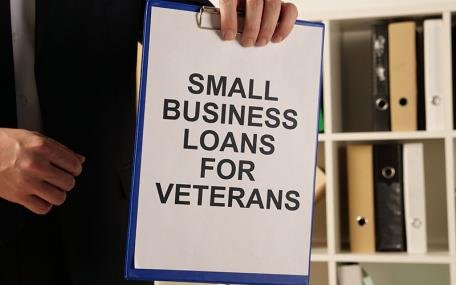Veterans transitioning from military service to civilian life often have the skills, discipline, and leadership qualities that make them ideal entrepreneurs. However, starting a business can be a significant financial undertaking. This blog post will explore the various startup business loans available to veterans, providing insights into eligibility criteria, application processes, and tips for securing funding.
Understanding the Benefits of Veteran-Owned Businesses
Veterans-owned businesses have a unique advantage in the marketplace. They often demonstrate strong leadership, problem-solving skills, and a commitment to serving their communities. This reputation can make them more attractive to lenders and investors.
Types of Startup Business Loans for Veterans
Several types of loans are specifically designed to support veteran entrepreneurs.
- Small Business Administration (SBA) Loans: The SBA offers a variety of loan programs for veterans, including the Veterans Advantage Loan and the 7(a) General Loan Program. These loans often come with favorable terms and conditions.
- Department of Veterans Affairs (VA) Loans: The VA provides home loan guarantees, but it also offers business loans through the VA Loan Guaranty Program.
- Veteran-Focused Banks and Credit Unions: Many financial institutions specialize in serving veterans and their families. These institutions may provide unique loan products and services tailored to the needs of veteran entrepreneurs.
Eligibility Criteria for Veteran Business Loans
To qualify for veteran business loans, you typically need to meet the following criteria:
- Veteran Status: You must be a veteran or service member with a discharge other than dishonorable.
- Business Plan: A well-developed business plan outlining your company’s goals, market analysis, and financial projections is essential.
- Creditworthiness: Lenders will assess your personal and business credit history to determine your risk.
- Collateral: Depending on the loan type, you may need to provide collateral, such as property or equipment.
The Application Process for Veteran Business Loans
The application process for veteran business loans can vary depending on the lender and loan program. However, the general steps typically include:
- Research and Selection: Identify the loan programs that best suit your needs and gather the necessary documentation.
- Complete the Application: Fill out the loan application forms and provide supporting documents, such as your business plan, financial statements, and tax returns.
- Underwriting and Approval: Lenders will review your application and conduct due diligence to assess your creditworthiness and business viability.
- Loan Closing: Once approved, you will sign the loan documents and receive the funding.
Tips for Securing a Veteran Business Loan
To increase your chances of securing a veteran business loan, consider the following tips:
- Build a Strong Business Plan: A well-crafted business plan demonstrates your understanding of the market and your ability to manage your business effectively.
- Improve Your Credit Score: A good credit score can improve your chances of approval and secure more favorable loan terms.
- Network with Other Veterans: Connect with veteran entrepreneurs who can provide guidance and support.
- Leverage Veteran Organizations: Many veteran organizations offer resources and assistance to help you start and grow your business.
Conclusion
Starting a business as a veteran can be a rewarding experience. By understanding the various startup business loans available to you and following the tips outlined in this guide, you can increase your chances of securing the funding you need to achieve your entrepreneurial goals. Remember, your veteran status can be a significant advantage in the business world.
